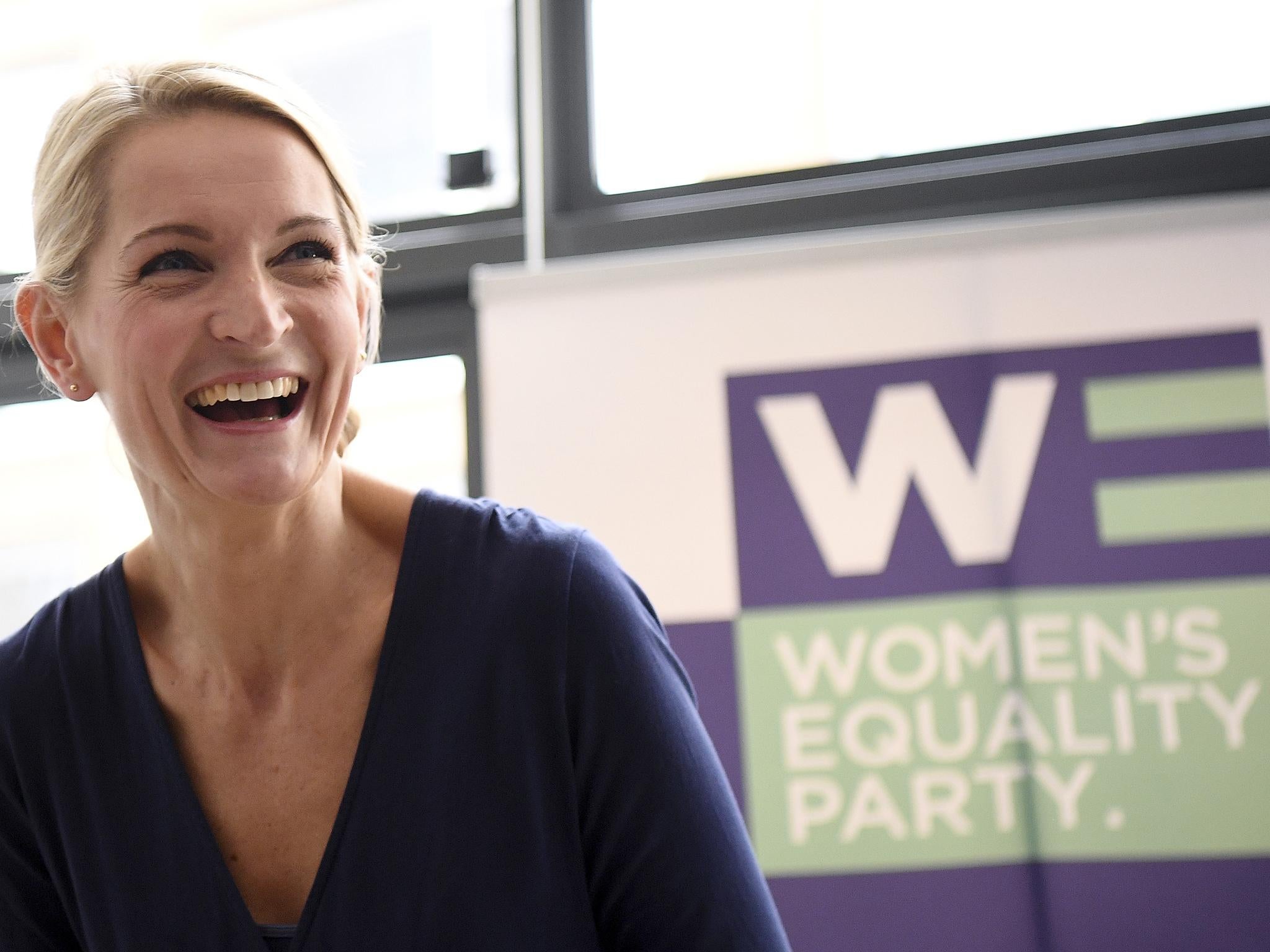I left the Women’s Equality Party because members were ignored – if it wants change, it should start there
Now that WEP leader Sophie Walker has stepped down to ‘make space for new voices’, the party must take steps to keep as far away from old politics as possible

I believe I was the third member to join the Waltham Forest and Newham branch of the Women's Equality Party (WEP) in July 2015. We had our first proper meeting in a pub in Leyton, and were full of optimism and “deeds not words” spirit.
Shortly after the first WEP conference, in Manchester in 2017, I cancelled my membership. I was branch secretary at that point, and had recruited a personal contact to WEP to stand in the June 2016 London General Assembly elections (I had also nominated myself for consideration as a candidate), and actively canvassed and campaigned in that election period.
While WEP was positioning itself as a disruptive kind of new politics, it felt to me that it was old politics reskinned. When I explored standing as a local councillor, it became clear to me that as a single working mother, my opportunities to participate in a meaningful way in local government were extremely limited.
I realised that while WEP's manifesto addressed these sorts of barriers to involvement in public life, the selections WEP made for the GLA and local office disproportionately favoured middle class women with huge support systems in place.
Like old politics, WEP was white and middle class. I am white and middle class, but I wanted to be part of something representative of the city and the country I live in.
But being involved in politics on any level is a luxury. I think WEP missed a trick by failing to fill the void of community grassroots action. WEP could have campaigned on important local issues which affect everyone – underinvestment in social housing, mental health, education and training (which disproportionately affects women) and really changed people's lives for the better – creating an association between local improvements and a new and pioneering party.
Over time I became increasingly frustrated by the lack of central organisation and direction from the party. I felt WEP was systematically failing to use the skills and experience of its many branches, and falling short of running coordinated campaigns and activities in order to make smart use of the energy our largely “time poor” members had to offer.

Why weren't we getting direction from party central, with clear instructions and “campaign packs” to activate at a local level? I tried through different channels to communicate this up the food chain, without success.
As a branch, we had expertise spanning education, communications, and legal disciplines, yet our recommendations and challenges were dismissed.
On a more existential level though, I began to realise that any attempts to reform the current political system are misjudged at this point in time. All political parties seem out of step with what's happening globally. We are living in the era of dataism, in a world which takes shape as a result of algorithmic levers – not as a result of the decisions that politicians do or do not make.
What we really need is a movement for change which genuinely addresses the challenges we face during this technological revolution, and I don't think WEP, or any of the established parties have the people or the creative nous to create that.
*Name has been changed to protect the writer's identity
Join our commenting forum
Join thought-provoking conversations, follow other Independent readers and see their replies
Comments
Bookmark popover
Removed from bookmarks